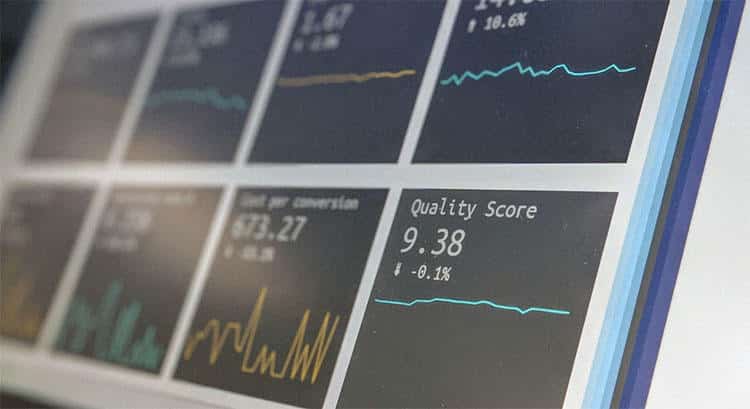Understanding the Myths Surrounding Commodity Trading

For years now, the investment realm and public in general have had numerous misunderstandings and myths concerning investing in the commodity market. As a result, many traders have been unwilling to trade in the same.
Experts in the commodity market opine that these myths emanated from traders who could not maneuver through commodity trading tactics, or those who were disappointed after incurring losses.
Many unsuccessful traders believe that commodities are too unstable, or that nobody is capable of making money from trading commodities. The fact is there are many successful commodity traders. Below is an analysis of some of the existing misconceptions and myths surrounding commodity trading.
Excessive Leverage
When it comes to commodity trading, leverage is a huge problem. Ordinarily, traders need to include between 3 to 15 percent of the overall amount of a futures contract in the futures margin. If you compare this with the 50 percent needed for stocks, it is evident that the rate is lower in commodities.
Many novice traders do not understand how to maneuver through leverage. The fact is that in the absence of the leverage factor, commodities are not as volatile as stocks. Many investors in the commodity market make the mistake of investing a $25,000 account as though it was a $250,000 account.
For instance, they may purchase 10 futures contracts with a margin of $2,500 while controlling commodities worth $250,000. In this case, when the value of commodities rises they will make $25,000 which amounts to double the investment. When the value of commodities reduces they lose the investment.
In order to achieve success in commodity trading, investors should trade less contracts that the margin requirements. This means that in the aforementioned example, the investor should trade either 1 or 2 futures contract separately. This will eliminate the intense leverage element that many commodity traders are afraid of.
Lack of Sufficient Money for Commodity Trading
When dealing with a commodity broker, traders can open an account with between $2,500 and $5,000. Remember, investing in the commodity market is risky and therefore the opening balance should be termed as the risk capital.
However, such low accounts are faced with some problems since traders will take up extreme risk in comparison to their account size. Many of them bet all their investment on one trade which is not advisable. Aiming at a 25 percent return each year can give you better success than having to trade everything at once.
Making Commodity Delivery
Commercial players in the commodity market are responsible for making and taking commodity delivery. Therefore, traders should not worry about it. However, they should ensure that their futures contract is closed prior to the day’s first notice which appears some weeks prior to the expiry of the contract. In the event they forget to close their futures contract notice, their forex broker will contact and alert them for subsequent notices.
There are no Returns in Commodity Trading
Commodity trading is a risky investment and traders will lose from now and then. Many times, the losers are traders who get into the commodity market without preparing adequately.
These traders have a high likelihood of losing within the first six months and giving up on commodity trading. Some of them are probably addicts who are trying to make huge sums of money using the same strategies which of course comes with little gains.
When it comes to commodity trading, a loss comes with a win. This means every dollar one investor loses is a dollar gained by another trader. Once transaction costs are included, then the amount lost for every trader will be more than one dollar, while the other investor will gain less than one dollar.
The question now begs, who makes money in commodity trading? Usually, professional money managers and commodity traders make money every year. Novice commodity traders also make money. However, they often trade for a prolonged period of time which can sometimes be up to 20 years within which they have taken money from numerous investors in the commodity market.
Finally
Whether you are a professional experienced or a novice trader, you can make money in commodity trading. However, it is easier said than done. It is important to carry out extensive research and adopt a robust trading strategy complete with good money management concepts. Again, study the tactics that successful commodity traders use and you are likely to succeed in the market. Commodity trading misconceptions and myths should not deter you from investing in commodities.
Have you read?
# These Are The 75 Most Innovative Universities In The Asia-Pacific, 2018.
# RANKED: The World’s Top 10 Richest Countries (2017-2027).
# Top CEOs And Business Leaders On Twitter: You Should Be Following.
# World’s Best Countries To Invest In Or Do Business For 2018.
# Most Wanted Luxury Hotels In The United States For Its Hi-End Travelers .
Add CEOWORLD magazine to your Google News feed.
Follow CEOWORLD magazine headlines on: Google News, LinkedIn, Twitter, and Facebook.
This report/news/ranking/statistics has been prepared only for general guidance on matters of interest and does not constitute professional advice. You should not act upon the information contained in this publication without obtaining specific professional advice. No representation or warranty (express or implied) is given as to the accuracy or completeness of the information contained in this publication, and, to the extent permitted by law, CEOWORLD magazine does not accept or assume any liability, responsibility or duty of care for any consequences of you or anyone else acting, or refraining to act, in reliance on the information contained in this publication or for any decision based on it.
Copyright 2024 The CEOWORLD magazine. All rights reserved. This material (and any extract from it) must not be copied, redistributed or placed on any website, without CEOWORLD magazine' prior written consent. For media queries, please contact: info@ceoworld.biz
SUBSCRIBE NEWSLETTER








